#valide sultana
Explore tagged Tumblr posts
Text


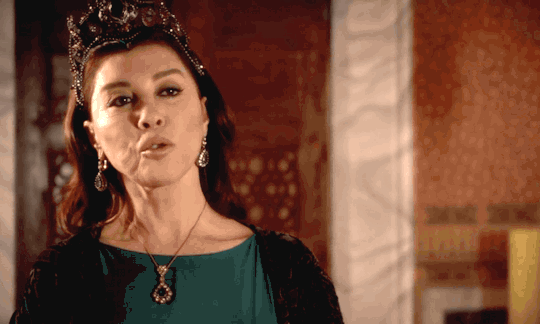
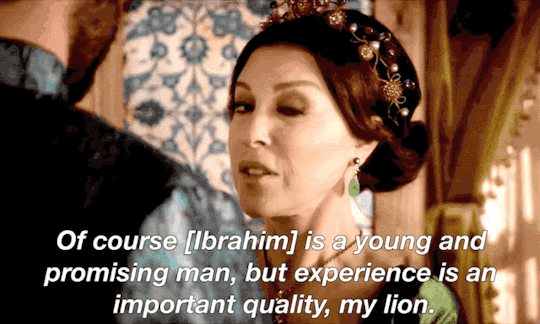


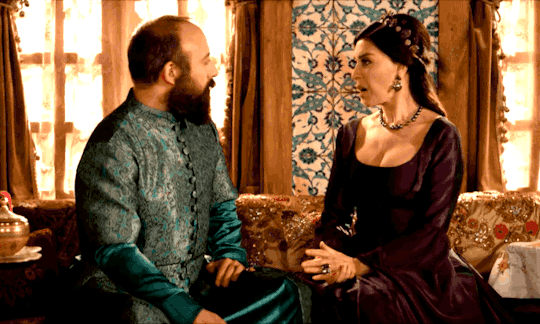
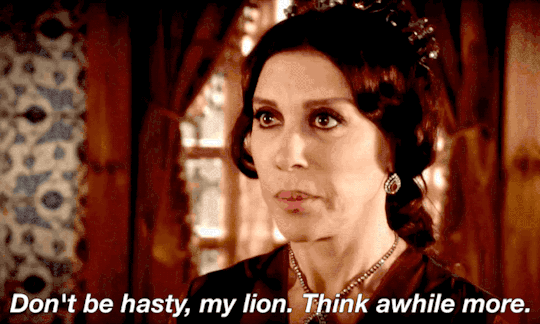
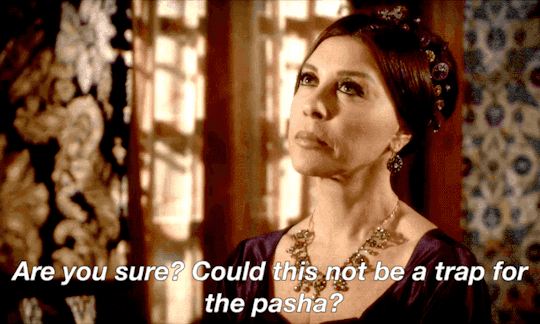

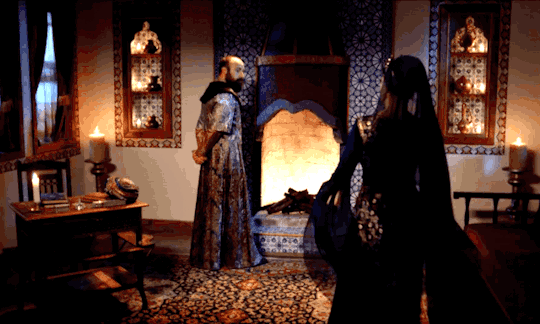

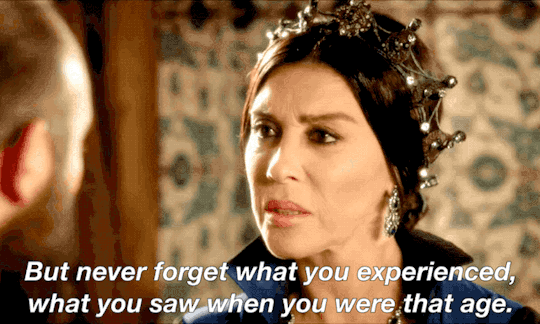
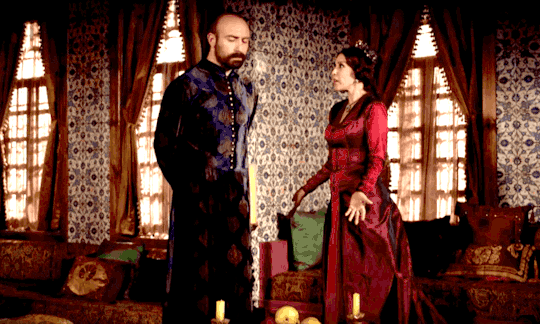
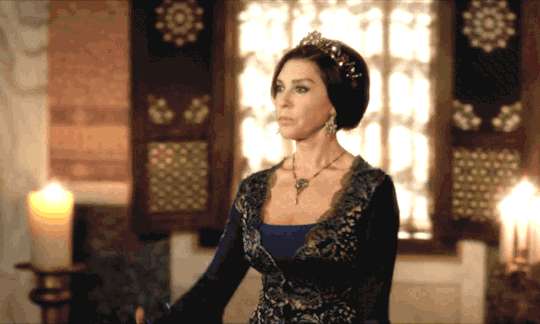

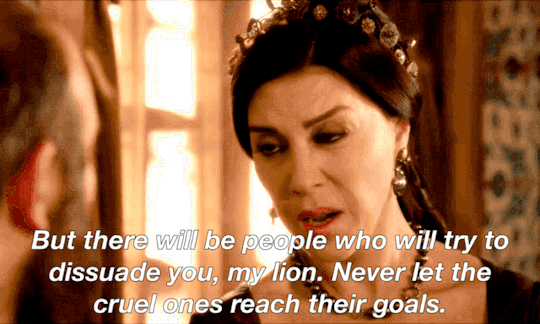


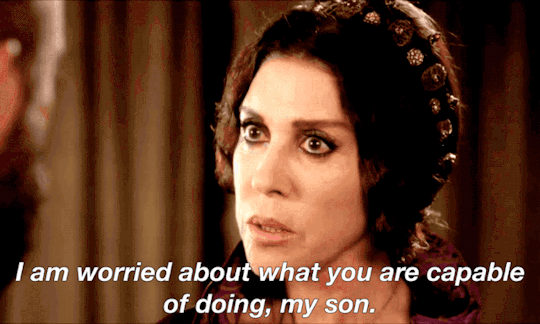
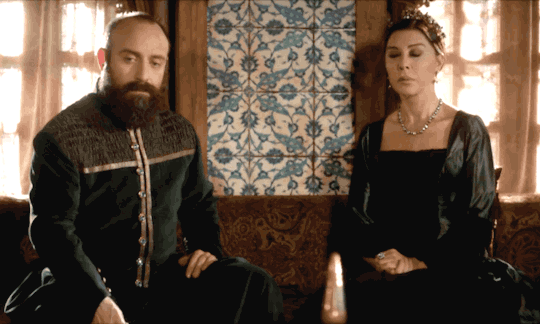


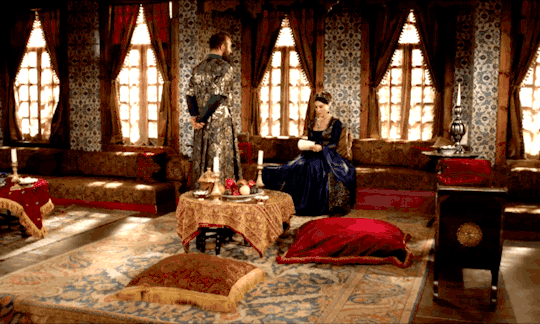


“The crucial role played by a prince’s mother before he ascended the throne was translated into a more institutionally secure and publicly visible role when the prince became sultan and his mother valide sultan. The valide sultan continued to carry on her roles as tutor and protector of her son...The valide sultan continued to instruct the sultan as she had the prince.”—The Imperial Harem Women And Sovereignty In The Ottoman Empire, Leslie P. Peirce
#Muhteşem Yüzyıl#Magnificent Century#mcedit#Muhtesem Yuzyil#weloveperioddrama#perioddramaedit#period drama#historical drama#Hafsa Sultan#Valide Sultan#Ayse Hafsa Sultan#history#Turkish history#Ottoman History#Sultan Suleiman#Awkward-Sultana#Sultan Suleyman#historyedit#Asian history
54 notes
·
View notes
Text





#history#magnificent century#muhteşem yüzyıl#ottoman#sultanas#ottoman history#ottoman sultanas#ottoman valide#valide sultan#Halimesultan#halime sultan#halime and handan#handan sultan#sultana handan#sultana halime
25 notes
·
View notes
Text
Power and status of ottoman princess
Title and honorifics
Before the rule of sultan Bayazid II every high ranking woman were called Hatuns,including mother,sisters,aunts and daughters, however thier social standing was naturally higher than non imperial women. The way to adrress them was Hatun that was used after their given name,for example, Gevherhan hatun,daughter of Mehmed the coqueror or effendi that would have similar meaning as mistress.
After accession of Bayazid II his daughters and granddaughters were given title of sultan,however non of his living sisters or aunts got the honor. Later on proper way to adress them woulf become “Sultanim”, which would mean “my sultan”,or again “effendim” by other members of imperial family. I would like to underline that contrary to what wikipedia states, there is no records that I know,where princesses where called with “Devletlu İsmetlu” like Valide sultan and Haseki sultan were.
The term “sultana” that was made more feminine by Europeans never existed in ottoman language.
Family, Marrige and Issues
I want to start discussing their family with brothers,it’s widely known fact that before suleyman there was “once concubine,one son” tradition therefore if shehzade/Sultan had full-sisters they were all older,that is one way to deduce if princess of unspecified mother was full sister of half sister of reigning sultan. Naturally Shezades had closer relationship to their full sisters as they were leaving with him and their mother,when he was appointed as governor of princely province. Their latter life would be spent in their brother’s harem before marriage.
being half sister of sultan did not automatically mean that their relationship would have been stained,however mostly,princess would favour full-brother over half,but were treated by same respect regardless who ascended the throne. It was different case when imperial princess had no full brother at all,for example Sah Huban, she had very close relationship with Suleyman,even closer than his deeply respected full sisters.
Their marriages,much like any other princesses of any country, was political,arranged by their parents to strengthen standing of their father or brother,for example daughters of Selim I were firstly married to powerful politicians,so their father would have supporters in his rebellion,while their second marriages were arranged to help Suleyman in his early reign. Their husbands were usually much older than them, therefore marital life was likely not consensual and in no way their choice. For example,Rustem paha,husband of Mihrimah,was same age as Hurrem,her daughter’s fate was even worse as she had to marry peer of her own grandfather,however given the fact that they had 8 children,marriage can be considered successful. After the Marriage princesses were getting their own little “Harrem”,where they had great rooms for themselves and their servants,where even their Husbands needed permission to enter and even refuse to have sexual intercourse with them,sometimes their marriage could end unconsumated and after some time princess could use another of their privilege-divorce. Reason of divorce could have been different: Personal attitude,mistreatment,political move or adultery. It was made clear,especially by Suleyman,that imperial princesses were full-fledged members of imperial family so they ranked higher than their husbands,therefore having relationship with other women was their humiliation,which would lead to divorce, after which they would retire in old palace and could refuse to remarry again.
Only their first degree descendants would be given imperial titles.
Daughters- Hanimsultan(with Ayse Humashah as exception)
Sons-Sultanzades. They ranked even below non-sultan imperial consorts and some of the highest ranking harem servants.
Hierarchy and Power
They actually had equal standing in ottoman hierarchy. As female members of dynasty they had the same status and privileges,were reffered as sultans and often received relative stipend.( Which was on average 200 akche a day, for comparison, Valide sultan had around 2000-3000 depended on time period, Haseki sultan 1000-1100(Hurrem as only exception,who got stipend of Valide sultan ) Gulfem,who was almost regarded as member of family herself was recieving 150, Nurbanu’s trusted friend and one of the highest ranking non-sultan woman ever Canfeda received 200, Mahidevran only received 40 and avarage stipend of cariye was 2-4) Besides, sisters of sultans were technically daughters of sultan, though the deceased one, still they were treated with great respect much like their late father. However, birth order was important thing in ottoman society so younger sister respected older and bowed to them as well as nieces bowing to aunts regardles of their martial or fianacal status. Therefore saughters of sultan,as nieces, were calling sisters of sultan,as aunts, “effendi" out of respect.
In conclusion, even if they had same social standing, sisters of sultan were still bit ahead daughters of sultan formally.
However, Granddaughters, Nieces and cousins of sultan,despite the same rank, were less prestigious.
Despite their relative social status and order of birth their actual power was dependent on several factors:
1. Their relationship with Padishah,Valide sultan or Haseki sultan. They had higher rank and much more evident political power, they still needed their permissions about major decisions,even if it were their right, so being on good terms with them was a good move. Half-sisters naturally were not as favoured as full-sisters by Valide sultan,but with padisah had more options, they could have been supportive, religious, charitable and obedient another way was sending beautiful, well-educated concubines,who could have become Haseki(after 1533), that is when their good relationship begun,most of Sultanate of women memebers were raised at their court and remained in favour after they became Valide Sultans, in that case even some of the Padisah’s expressed gratitude and gratefulness for raising their mother, (such occasion was Ahmed I’s attitude towards her aunt which I will discuss below.), they could also donate money to wars, harem managements and charitable projects, either all their own or assist Haseki sultan.
2. The second way to gain power was wealth. Money opens many doors and it was like that in the past. They could establish some business or even receive bribes.
3. They could also gain power with marriages, it was not only beneficial for their brothers,but for them as well. If their husband had a high rank, they could keep an eye on the political situation and act accordingly, they would use that influence to assist their brothers, who,In turn, would be extremely grateful for their support.
Comparison between Ottoman and European princess
Status- Status of European princesses depended on their marriage. Being princes was not guaranteed power,but only a formal status. For example, Margaret Tudor was below prince Henry in rank but when she married by proxy to Scottish king, she outranked him and demonstrated that by walking in front of him. On the other hand, another sister Mary married to Charles Brandon and was Duchess of Suffolk ever since,while Status of Imperial princess remained the same.
Opportunity- European princesses could have become Queen consort and Queen mother and veiled immense power, while imperial princesses could never become Haseki or Valide.
Marriage- Ottoman princesses were usually older when married and outranked their husbands,while European princesses were always below their husbands. Sultan could also refuse remarryin,while European princesses had no such right
Freedom-European princesses were less limited by social customs.
Consummation-Ottoman princesses had the right to refuse Consummation without a deadline, while European princesses had to Consummate marriage even if they were twelve, unless of course parents arranged it other way.
Divorce - it was right of ottoman princesses to divorce their husbands,while for European princesses it was a rare privilege.
Despite so many differences, one thing was same- they had a loveless purely political match .
Powerful ottoman princesses
Here I Rank ottoman princesses,who had considerable power and influence, sorted by date of birth.
P.S gifs are from MC and MC:K,but some characters might represent different historical figures.
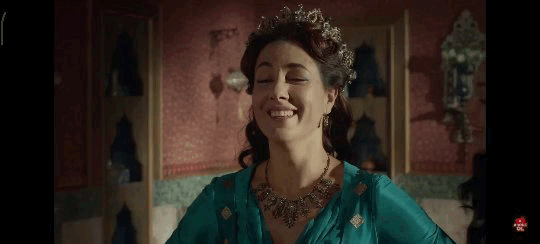
Fatma sultan
Fatma may have been the second child of Ayşe Hafsa and Selim I . She was born in Trabzon around 1492 and spent her childhood there. When her younger brother Süleyman received his own princely province in 1509, she probably accomponied him to Caffa with their mother.
She was married in 1516 for the first time,but it soon ended in divorce and Fatma returned to Manisa. She gained considerable influence as she was most likely the sister,who was recorded to be in Manisa, helping mother manage harem and protect Suleyman from their father. If legends are true and Selim was indeed trying to kill Suleyman,that she had hands in saving him. Most likely, Fatma and her mother were instructing young sukeyman,how not to deserve the wrath of father and covering his mistakes. After Suleyman ascended the throne, she was married again to Kara Ahmed pasha in 1522. Marriage lasted long,but did not produce any child, so either fatma was infertile (Kara Ahmed pasha had two daughters that are disputed to be fatmas,but they were likely from previous marriage) or the match was not happy and Fatma refused sexual intercourse, however considering her reaction to his death, it was most likely the former.
According to what we have Fatma seems to be quite free spirited as depicted in the series. She was wealthy, cunning and might have been fond of parties. She had hands in financing some of her brother’s campaigns and even won the favour of janissrries. However, in 1555 Kara Ahmed pasha was executed by the efforts of Mihrimah and Hurrem and Fatma was married to eunuch and banished from the capital for hed intrigues against them She died either in 1557 or 1573.

Sah huban sultan
Daughter of Selim I and unknown concubine, born in 1500. As she has no full brothers, she was very close to Suleyman and their father, with whom she spent most of her childhood. Considering Suleyman’s great respect for her, Sah was likely a supporter of him and helped to deal with Selim I.
She was married in 1523 to well-educated and intelligent Lutfi pasha with whom she shared religious thoughts and beliefs. Marriage, however did not seem to be successful the couple only had one daughter and Sah refused to have a sexual relationship ever since. She was very pious, intelligent,outspoken and fierce in nature. In the only description of her daughter Esmahan Burnaz, it is said that she was arrogant and demanding and it was Shah’s domineering attitude in the family that was blamed for it, as by this “she had ruined the role of woman” in the child’s mind. However,that was recorded by the European ambassador only, who had never met any of them and probably heard some rumors or made it up after an ugly end of their marriage.
In 1541, Lutfi pasha punished a prostitute for adultery by mutilating her genitals.Şah could not tolerate the humiliation and mutilation of a woman without a word, which is why she got into an argument with her husband, who hit her . Şah had Lutfi pasha beaten up and immediately asked his brother to allow the divorce. Süleyman then exiled him. Şah remained with her brother in Istanbul for the rest of her life and supported the wife of Süleyman, Hürrem, in carrying out her construction projects. She lived a modest life in the Old Palace and devoted all her time to charity and religion. Shah had excellent relationship with Hurrem and Mihrimah and in my opinion, close bond between aunt and niece helped young sultan to shape her mind and characteristics. She died in 1572 and was buried in her father’s complex.

Mihrimah Sultan(1522-1576)
Her life is very much known. She was the most powerful imperial princess in the empire, so I will just list some of her achievements:
1. Her stipend was 600 akches a day during the reign of three different Sultans. it was three times as much as regular pirncess
2. She had correspondence with Catherine de Medici and other foreigner diplomats, who would often send her gifts to help them in some political affairs.
3. She financed some of Suleyman’s campaigns all her own
4. She built a whole fleet of 400 ships.
5. She had three palaces and two mosques
6. She served as sole de facto Valide from 1558 to 1566 and shared it with Nurbanu from 1566 to 1574.
7. After the death of Bayazid Mihrimah banned everyone from laughing and sent back clothes to Suleyman and Selim who were secretly planning a grandiose wedding, that was cancelled by Mihrimah and instead a very plain ceremony was held.
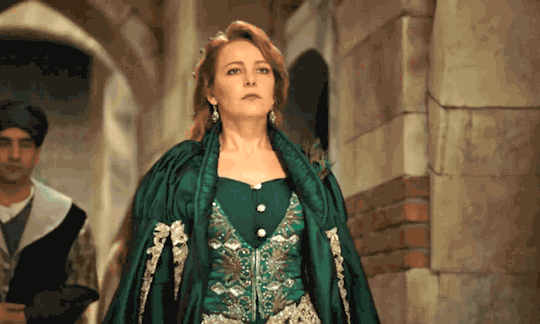
Humasah 1543-c.1582 or later
She was a posthanous daughter of Shehzade Mehmed and despite being only a daughter of prince, she was given the same privileges,but greater power, as any other sultans. She was one of two favourite grandchildren of Hurrem and Suleyman. She married three times,but the source of her power was a good relationship with Sultans. She was the one who raised Safiye and gifted her to Murad, so her power reached it’s peak during his reign.
She financed many construction projects,but was buried in a mosque that was built by Hurrem and Suleyman for her father.

Ayse Humasah 1543-1594.
Daughter of Mihrimah sultan and Rustem pasha, she was practically the same as her cousin with whom she shared many things started from date of birth and ended with their name. Ayse Humasah was the only woman born to an ottoman princess,who was herself addressed as sultan and her children were considered members of the dynasty. She was married two times and her influence was extremely great during the reign of three Sultans. Her power reached it’s peak, when her husband was appointed a grand Vizier and she had hands in very major political decision.
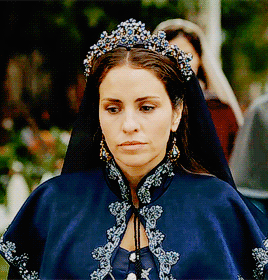
Gevherhan Sultan. 1544-after 1526.
Eldest child of Nurbanu and Selim. She was married to Piyale Pasha, an admiral who died in 1578 and she was remarried in 1579. She was one who raised Handan and gifted it to the prince, for which not only Handan was grateful, but her son Ahmed as well, who after his accession gifted very expensive furs to Handan, Gevherhan and Safiye. The second gifts were given to Handan and Gevherhan only,which indicates that unlike Safiye,she never fell from his favour. Peak of her power was from 1598 during her husband’s grand vazirate. She did a lot of charity in her life.
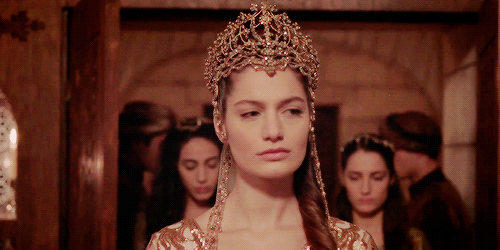
Ismahan sultan 1545-1585
Daughter of Selim and Nurbanu,she was married to Sokollu Mehmed Pasha and Through her husband and her own rank, Esmehan was the most influential sultana of the empire for years. In wealth, only her aunt, Mihrimah, could overtake her, but in influence, almost no one could. She constructed several projects and had foreign diplomatic affairs, most notable her correspondence with Catherine de Medici. She had a very artistic and dramatic personality, often throwing parties and shows. She was recorded to be very much alike Hurrem,both of them were short, not conventionally beautiful,but very intelligent. She was heavily involving herself in politics with her mother.
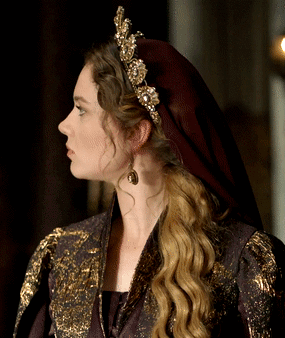
Burnaz Atike Sultan
Sultan Atike was born in 1614 or 1615 and although some sources consider her to be the daughter of Kösem, she was certainly not her child. That can be supported by the fact that she supported Turhan’s rebellion and had a good relationship even after kosem was killed. She was one who raised Turhan and remained in friendly terms for both Turhan’s gratitude and their shared politican views. Atike was noted to love children very much,but had none on her own, so she was involved in raising her nephew,who regarded her as second mother and listened to every of her advice.
She died around 1570.
I hope you liked it, I think it’s unfair to only talk about Mihrimah,while there were so many powerful and intelligent Princesses. I did not talk about Esma sultan as she was in later centuries and I am not fond of her times.
Which ottoman princesses are you favourites?
If i accedentaly missed something out you can ask it in comments
#historical drama#period drama#history#sultanas#valide sultan#medieval women#nurbanu sultan#hurrem sultan#mihrimah sultan#safiye sultan#kosem sultan#turhan sultan#magnificent century#magnificent century kosem#mc: kosem#sultanate of women#sultan suleyman#haseki hurrem sultan#ottoman history#ottomanladies#ottoman empire#15th century#16th century#17th century
137 notes
·
View notes
Text
Esta es mi versión de cómo se veía la sultana hurrem, ☺️.

#calabaza#dibujadoamano#dibujo#dibujo a lapiz#drawdrawdraw#draweveryday#drawing#dibujar#mystyle#abstract#imperio otomano#otomano#hürrem sultan#hurrem sultan#meryem uzerli#Elsultan#sultan#valide sultan#sultana
13 notes
·
View notes
Text

La pareja Bayazid y Kya
Son la cuarta pareja de este amor reencarnado
#AmorProhibido#Bayaceto y Kya#Sultana Kya#Sehzade Bayazid#Sultan Abul I#Sultan Mustafa#Sultana Valide Sahrazade#Haseki Fatima#Rabia Sultan#Malhun Sultan#Mahidevran Sultan#Sehzade Abullah#Sehzade Ali
0 notes
Note
Magnificent century yayyyy i want yandere sultan Suleiman smut or minors like you say ofc With the reader She was not the type like Sultana Hoyam. She was a girl who came to serve them and nothing more, but the Sultan loved her at their first sight in the hall. While the girls tried to dance for him so that one of them would become his wife, Suleiman invited her to a room so that she would be the one to have his children and marry her (with Some porn please) sorry if its too long (T_T) but i love you from the first post from you please make it for meeeeee
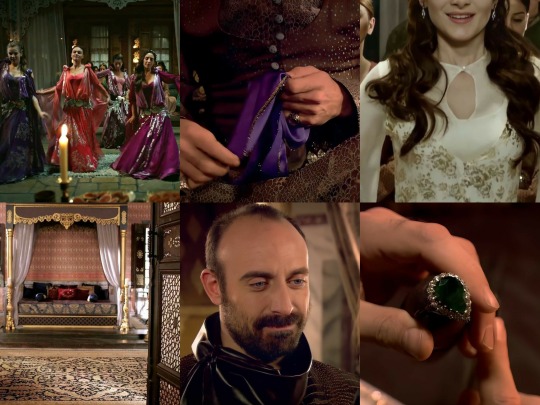
Hello dear. Don't worry. It's okay if your post is long. What matters is that you wrote your request clearly and correctly. I love you too. I'm so happy to hear that you like my writings. I hope I understood your request correctly.
[NSWF/+18]
》 Scenario《
We've been on this ship for days. You were kidnapped by pirates and taken to the Ottoman Empire. There were many other girls on the ship besides you. The one who made the most fuss was a girl named Alexandra. After traveling for a few more days, the ship finally managed to land. They took a group of girls with you to the Palace. After the bath, they took you to the Taşlık. You weren't fighting, following orders and not causing trouble. That's why the servants in the harem were nicer to you. Days later, Valide Hafsa Sultan organized a party for her son who had just ascended to the throne. You weren't among the concubines dancing for Sultan Suleiman. To be honest, you were grateful for this because you were too shy to dance. You were playing the lute while accompanying two concubines who were playing music. Alexandra was trying the hardest among the dancing concubines. She wanted to attract the Sultan's attention and get the purple handkerchief. The music stopped and the concubines stopped dancing. They were waiting to see which one the Sultan would give the purple handkerchief to. Sultan Suleiman stopped for a few seconds and then stood up and started walking. He stopped in front of the concubines who were playing music. Suddenly he handed you the purple handkerchief. You looked at the handkerchief in surprise and then at Sultan Suleiman. He smiled and handed you the handkerchief. Without realizing it, you took the purple handkerchief from him. When the Sultan left the room, the dancing concubines looked at you angrily. Alexandra was especially angry.
After you washed yourself in the bathhouse, the apprentices helped you get ready. In fact, they only laughed at all the excuses you made not to go. You reached Sultan Suleiman's room by passing through the golden road. When the guards opened the doors, you walked in trembling. You nearly fainted with fear. Sultan Suleiman was right in front of you. You knelt down in front of him as you were taught and kissed the hem of his robe. He gently grabbed your chin and lifted you to your feet.
"Don't be so afraid, my dear. I will give you all the pleasure in the world tonight."
He slowly undressed you. He slowly guided you to lie down on the bed. But first, he made you drink a glass of wine. When you lay down on the bed, Sultan was looking at you as if you were his prey. He slowly pressed his lips to yours. During the soft kiss, he massaged your breasts, pinched and pulled your nipples. You could feel the area between your legs getting wet. Your sides started to blush with embarrassment. Suleiman stopped the kiss and looked at you with a grin.
"Shy Princess, you are so wet."
He slowly started to rub and squeeze your clitoris with his fingers. Light moans were escaping your mouth. Minutes later, you squirted when you reached your climax.
"Good girl."
Suleiman lightly slapped your pussy. He took off his pants and rubbed his penis, the tip of which was leaking sperm, against your wet pussy. He positioned his penis at the entrance of your pussy. He pushed it in slowly. A light moan escaped from your mouth. He slowly pushed it all the way to the bottom. He waited a few seconds for you to get used to it. He started moving slowly. After a while, his movements got faster. When you both reached your peak, he pushed his penis all the way to the bottom and filled your womb with his sperm. He stayed inside you and held you in his arms. You were both covered in sweat and out of breath. He placed a small kiss on your forehead. What you didn't know was that you were now a woman who had Sultan Süleyman's love and obsession.
#yandere historical characters#yandere ottoman empire#magnificent century#yandere magnificent century#sultan suleyman#sultan süleyman#sultan suleiman#yandere sultan suleiman#yandere sultan suleyman#yandere sultan süleyman#yandere sultan#sultans#yandere x darling#yandere x reader#yandere male#yandere emperor#yandere king#yandere royalty
39 notes
·
View notes
Text
I feel the first sultana associated with the thematic ring™ is Mahi not just because she fully embodies its personal meaning (the entirely personal memories one's had but also lost: the love between Süleiman and Mahidevran and the security that comes with it; the precious times in Manisa Mahidevran cherishes and clings to long after they're gone, not willing to give them up, not willing to give any of it up), but also because her current position as the haseki is the set precedent in the show for now. It's so central and so singled out by others ("Mahidevran Sultan is his only woman.") that Mahidevran should keep appearances and set an example at any cost, lest someone else snatches it all away from her. And this "serving as a possible door to becoming Valide Sultan" position is just waiting to be snatched, with all the other favorites and cariyes being shown to want to gain it for themselves, including Gülnihal and Hürrem. And only when they do, it can be built upon and we can move on to all the other unseen precedents the next hasekis/valides will achieve, the meaning of the ring shifting alongside them. The ring made for Mahidevran is the status quo of the wider harem dynamics, set up only to be shaken to its core (as even the person who designed the ring himself wants to make his own status quo, bringing change in too).
#(again I'm only talking about the show's own made-up hierarchy)#it's fascinating how the personal and the grander meanings of the ring can't ever be fully separated already actually#even when the ring is at its absolute most personal wider implications can't help but be brought along due to the whole picture we now see#yes the ring is definitely just personal for *the characters that represent that meaning themselves*#but for the rewatching audience? not so much.#magnificent century#muhteşem yüzyıl#muhtesem yuzyil#mahidevran sultan
18 notes
·
View notes
Note
Hello,I read somewhere that there is version in Secrets of the Ottoman court,private lives of the Ottoman sultans and Inside the Sergalio by John Freely,based on English ambassador Thomas Roe that during the second reign of Mustafa I,Halime Sultan and Kara Davud Pasha had plotted to execute all the survivng sons of Ahmed I and to ensure the throne for the son of Kara Davud Pasa and his wife who was imperial sultana and daughter of Halime Sultan- Sultanzade Suleyman Bey as the only heir of Mustafa I. The chief of the white eunuchs with his men secretly had gone to strangle the princes,but they had been stoped entering by palace guards who had informed the janissaries and sipahis who were on the outer guard of the palace and investigation had begun,in which the white eunuch and his men were executed,Kara Davud Pasa had lost his position as grand vizier,while the main culprit Halime Sultan had escaped punishment as she was consider mother of the saint Sultan Mustafa. Do you maybe know more about it?
This is what John Freely says:
Davut Pasha had married the valide's daughter, Mustafa's sister, who subsequently bore him a son named Süleyman. According to Sir Thomas Roe, the valide and her son-in-law concocted a plot to have all of the surviving sons of Ahmet I murdered, so as to leave Davut's son Süleyman as the only living male in the Osmanlı line other than Sultan Mustafa, who had fathered no children and resisted all attempts to introduce concubines into his harem. Thus the valide's grandson would inherit the throne, or at least she and Davut Pasha so hoped. The valide's henchman, the chief white eunuch, led a group of his men into the Old Saray to kill the young princes, but they were stopped by the palace pages. The pages alerted the Janissaries and Sipahis on duty around the palace, who apprehended the would-be assassins and hanged the chief white eunuch in the Hippodrome as a public spectacle. The soldiers demanded justice, and as a result Davut Pasha was dismissed as grand vezir, though the valide escaped punishment because of her privileged position as the mother of Sultan Mustafa, whose madness led the populace to consider him a saint. Soon afterwards the Janissaries did away with Davut Pasha, strangling him in the same chamber of the Castle of the Seven Towers where, on his order, they had killed Osman. — J. Freely, Inside the Seraglio, 37%.
This is what Thomas Roe says:
(I have fixed some of the spelling)
On Satterday evening, the first of June following, the capiaga or maior domo of the seraglio, having received a secret order to remove the brethren of Osman from their lodgings, and in the night to strangle them; as he was performing his command, ayded with a fewe of the carnifices to carry away the princes, they cryed out; the pages running to the noise, and encouraged by the caslariaga, who had some suspition, without further examination kill the capiaga; now almost every order having risen against their own head, that night they sent secretly to the Janizaries and Spahees to enform them what the had done, and in the morning early hanged his body in the Hippodrome for a publique spectacle. The soldours retorned in fury to court in favour of the pages, and demanded justice against those who had consented to this wicked order, which had made an end of all the Ottoman race, only this Mustafa left alive, who is so holy a saint, that he will not people the world with sinners, nor endure any women about him. The innocent king protests he knows nothing of this purpose, and if his command were procured, it was gotten by subreption; and he is easily believed. But his mother, another Livia, and the new vizier Daout bassa, who had her daughter to wife, were vehemently suspected. It was a day of divan or councill, but these soldiours would suffer none, until they had an accompt of this treason. The vizier denyes all, the mother is a woman, and hidden in the house, yet it is very likely that both were guilty, to uphold and secure their owne authority, it beeing rumored, that the vizier determined to place subditiously, in the roome of the elder prince, his owne sonne, and very like him, and so to governe Mustafa for a tyme, and by his remove to establish himselfe and his race for ever. — The negotiations of Sir Thomas Roe, in his embassy to the Ottoman porte, from the year 1621 to 1628, p. 52.
5 notes
·
View notes
Note
Ypure opinion on cruising is only valid if you love raisins as well (sultanas in particular)
raisins are disgusting literally never
19 notes
·
View notes
Text
there's something in the way Afife protects and stands up for Firuze even AFTER she befriends Hurrem.
like when Hurrem throws Firuze in the dungeons, Afife struts her ways to her chambers and asks for an explanation, even saying "She is the favorite of His Majesty, i won't allow anyone to treat her like this". when Hurrem refuses, Afife then goes straight to Suleyman. and remember, this is all after she saves Hurrem! at this point in this story she likes her!! Afife will go against an all powerful sultana, even one she likes, to protect a "mere concubine".
and why does this make me so emo?? because young Hurrem was thrown in the dungeons as well, and NO ONE batted an eye. she rotted in there for like a day and it took Suleyman's summoning to get her tf out. even then, they still tried to cover it up!!! i don't think any of that would have happened had Afife been there from the very beginning. she would have stood up for Hurrem against Valide\Mahidevran the same way she stood up for Firuze against Hurrem. and i think Hurrem knows this as well and it absolutely kills her. it really adds a deeper level to the "when i arrived at this palace nobody protected me" speech and explains perfectly why she said it to Afife.
@shivrcys (tagging you cause you're just as invested in Hurrem and Afife's relationship)
46 notes
·
View notes
Text
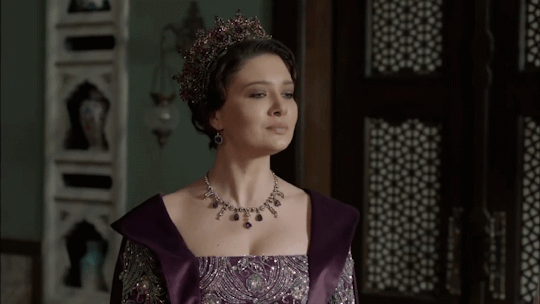




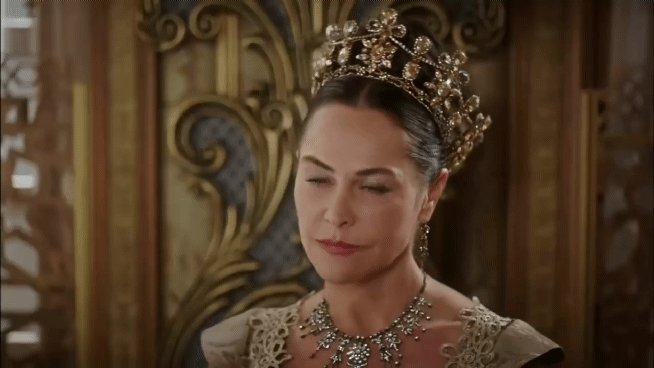
#history#magnificent century#muhteşem yüzyıl#ottoman#sultanas#ottoman history#ottoman sultanas#ottoman valide#valide sultan#valide kosem sultan#magnificent century kosem#muhteşem yüzyıl kösem#magnificent century: kosem#hurrem gif#haseki hurrem sultan#hurrem sultan#Safiye sultan#My gif
45 notes
·
View notes
Text
Sultanate of women
People usually give Hürrem all the credits of starting the Period,but let's not forget the contribution of other women in this.
Ayşe Hafsa Sultan [the Base]- The first slave to become sultan. Without her support, perhaps there would have been no Hürrem Sultan.
Haseki Hürrem Sultan [ The Architect] - All the help aside, she truly is a one, who changed the fate of her and of all the women,who came after.
Valide Afife Nurbanu Sultan [The Pillar]- people often say that Hürrem is the one who traced the path, I say she is the one,who found it, while Nurbanu traced. She is the first registered Valide Sultan after all, she bestowed the power upon the title, something every other woman used. I would say, if we take Hürrem out Sultanate of women would still start in 1574,but if we take out Nurbanu, it would end with Hürrem. She prolonged Sultanate of women, she was the pillar of the era,that Hürrem started.

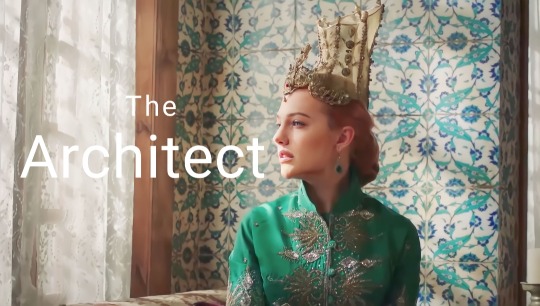

#haseki hurrem sultan#valide sultan#hafsa sultan#nurbanu sultan#history#16th century#magnificent century#magnificent century kosem#ottoman empire#ottomanladies#historical events#sultanate of women#women in politics#women in history#ottoman sultanas#ottoman history#historyedit
56 notes
·
View notes
Note
As you know, in 1655, fourteen sultanas received gifts from Ragusian envoys:
1. Fatma sultana moglie di Fasli passa
2. Ghiusciahato sultana moglie di Chienan passa
3. Behar sultana moglie di passa di Cairo
4. Caia sultana moglie di Melek passa
5. Ruckie sultana moglie di Telak Mustafa passa
6. Fatisce sultana moglie di Haidar passa
7. Aisce sultana stata moglie di Gascir passa
8. Fatma sultana moglie di Jusuf passa
9. Vsci sultana moglie di Ahmet passa
10. Faslite sultana moglie di Lauer passa
11. Fatige sultana moglie di Jusuf basci
12. Inasce sultana moglie di Hassan passa
13. Hatige sultana moglie di Jusuf Gesali
14. Safie sultana moglie di Haidar Sade, figlia di sultan Murat
______________
1. Fatma Sultan binti Ibrahim, wife of Fasli pasha
2. Gevherhan Sultan binti Ibrahim, wife of Sari Kenan Pasha
3. Beyhan Sultan binti İbrahim, wife of Haseki Mehmed Pasha
4. Kaya Sultan binti Murad IV, wife of Melek Ahmed Pasha
5. Rukiye Sultan binti Murad IV wife of Tellak Mustafa Pasha
6. ???
7. Ayşe Sultan binti Ahmed I, wife of Ibşir Pasha
8. Fatma Sultan binti Ahmed I, wife of Koca Yusuf Pasha
9. Ümmügülsüm Sultan binti Ahmed I, wife of Ahmed Pasha
10. Fahrihan Sultan binti Murad III, wife of Dilaver Pasha
11. Atike Sultan binti Ahmed I, wife of Doğancı Yusuf pasha
12. Hümaşah Sultan binti Murad III, wife of Nakkaş Hasan Pasha
13. Hatice Sultan binti Murad III(?), wife of Jusuf pasha
14. Safiye Sultan binti Murad IV, wife of Haydarzade Mehmed Pasha
I have problem to identify certain Fatisce sultana, wife of certain Haydar Pasha. It could be misspelled by Ayşe, Atike, even Hatice. And I don't know whose daughter it could be. Maybe Turhan's daughter, Atike Ayşe Sultan? I don't know...
I wanted to ask you what do you think of this, who the sultana and the pasha are, because I am not sure.
Hi! Well, I'm sorry that I can't be of much help with this. I also have no idea who this princess could be, though I've been curious about her too. From what I searched about it before, there was apparently not an influential Haydar Pasha in that period (by influential I mean a vizier or admiral), which makes me think this princess might've not been exactly Turhan's daughter, maybe just one of Ibrahim's with a random woman. But as we know, there were cases were less influential matches for daughters of Hasekis and/or Valides were made depending on the situation (aka Hanzade with Bayram Pasha, which was a very specific situation). Unfortunately, we know nothing about this Haydar Pasha to make much with it and much less of what might've been his role in politics of that time.
4 notes
·
View notes
Photo










Magnificent Century AU: A murderer is terrorizing the seemingly impenetrable harem of the sultan. No one is safe, not the lowest of concubines, the precious Şehzades and sultanas, or even the valide sultan. Who is the murderer? A crazed eunuch? A concubine bent on revenge? A jealous haseki? No one can sleep...no one dares be alone...no one can be trusted...
#Muhteşem Yüzyıl#Magnificent Century#kosemedit#mcedit#perioddramaedit#MC Murderer AU#weloveperioddrama#magnificent century kosem#muhtesem yuzyil kosem#Muhteşem Yüzyıl Kösem#Muhtesem Yuzyil#wspaniałe stulecie#Magnificent Century: Kösem#mc: kosem#period drama#perioddrama#violence tw#knife tw#blood tw#Awkward-Sultana#Magnificent Century AU
52 notes
·
View notes
Text
Gülçiçek Valide Hatun
One of the first enslaved imperial mothers to have a tomb dedicated to her; Gülçiçek Valide Hatun.
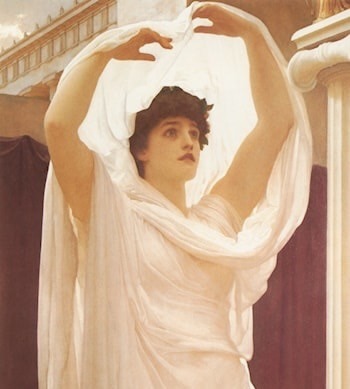
Same as her date of birth, her birth name is unknown though it is sometimes suggested to be Maria.
Though the year of her capture is not documented, nor how she ended up in the Ottoman imperial harem there is a legend about her person; that she was never a concubine but instead a wife of Murad I.
The tale goes as such...
Maria was the young noble Byzantine widow of Aclan Bey and the mother of Yakhsi Bey. She was captured in 1344 when Orhan Ghazi captured the principality of Karasi. After 15 years of widowhood, the troubled mother of Murad: Nilufer, who on her end suggested many suitors for her, all of whom she refused.
Eventually, Murad offered himself and she accepted, changing her name to Gülçiçek. - ( " The European Sultanas of The Ottoman Empire " by Anna Ivanova Buxton )
The tale seems highly improbable as the Ottoman rulers, do not have a strong history of marrying widows, especially ones who have been captured, and thus are considered slaves. However, it is possible, or that at least there is some truth to this tale.
When looking at her name origin Gülçiçek means "rose blossom" in Turkish, meaning she was of slave origin and a convert.
Sakaoglu makes the suggestion that perhaps these women are two different individuals, but Gulcicek herself entrusted her endowments under the care of her son; Yahsi, and as we know Murad has no son under this name.
It might be possible that Gulcicek married a man from Bursa after Murad's death and from this marriage a child was born though this has never confirmed or looked at more carefully by historians.
Gülçiçek became Valide Hatun in 1389, after her son ascended the throne upon the death of his father; Murad, sometime after the battle of Kosovo. She will served as Valide Hatun from 1389 to 1400, upon her death.
Not much is known about her relationship with her child; Bayezid. The only thing I found and noticed is that she is not mentioned as one of the attendees of Bayezid's wedding to Devletşah Hatun in 1381. Instead, his unnamed governess was in attendance. - ( " Bu Mulkun Sultanari " by Necdet Sakaoglu, pg 54, narrated passage by Ashikpasazade )
An interesting point about the mosque in which she was buried is located in a Greek neighborhood in Bursa called the " Night Quarter ". This also indicates her Greek origin, and that she was still related or saw herself as a Greek woman which is why she was buried in this quarter; which had yet to be Islamized at the time. - ( Bu Mülkün Kadın Sultanları by Necdet Sakaoglu )
#history#valide hatun#ottoman history#Gülçiçek hatun#gulcicek hatun#bayezid I#Murad I#bayezid the thunderbolt#Yildirim bayezid#Gulciek Valide Hatun#Gülçiçek Valide Hatun
8 notes
·
View notes
Note
handan for the character bingo.

I don't have very intense feelings for her tbh but I do like her, I think she's the most relatable valide sultana from the franchise, I ship her really hard with Halime & I wish they didn't ruin her relationship with Kosem after they worked together for so many time.
2 notes
·
View notes